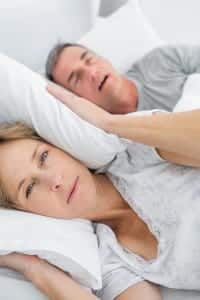Sleep Apnea and Frequent Night Urination
Many people blame their frequent visits to the bathroom every night on an overactive bladder (OAB) or, for men, an enlarged prostate. While these may be frequent causes of nocturia (waking up to urinate more than one time per night), an often overlooked cause is obstructive sleep apnea. If you wonder how sleep apnea could cause you get up multiple times at night to urinate, a recent study by Miyauchi et al confirms both the relationship between nocturia and sleep apnea as well as the improvement seen with treatment.

While there are several causes of nocturnal polyuria, an often overlooked one is obstructive sleep apnea. Blockage of your airway in sleep apnea results in a lot of negative pressure in the chest as you try to breathe (try closing your throat and taking a breath). This causes more blood to return to the heart. When this part of the heart expands from the extra blood, it releases a hormone (atrial natriuretic peptide) that makes you make more urine. It’s as if the body thinks there is too much blood volume (maybe you drank a lot of fluid) and tries to get rid of the excess fluid. So, patients with obstructive sleep apnea make too much urine at night.
The encouraging news is that treatment of the sleep apnea such as with a mask providing continuous airway pressure (CPAP) not only treats the sleep apnea but also will reduce the urine production and the nocturia. So next time you find yourself getting up that 3rd or 4th time at night, consider having an evaluation of whether you are making too much urine at night. If so, a test for sleep apnea may be in order.
Colin M. Goudelocke, M.D.

